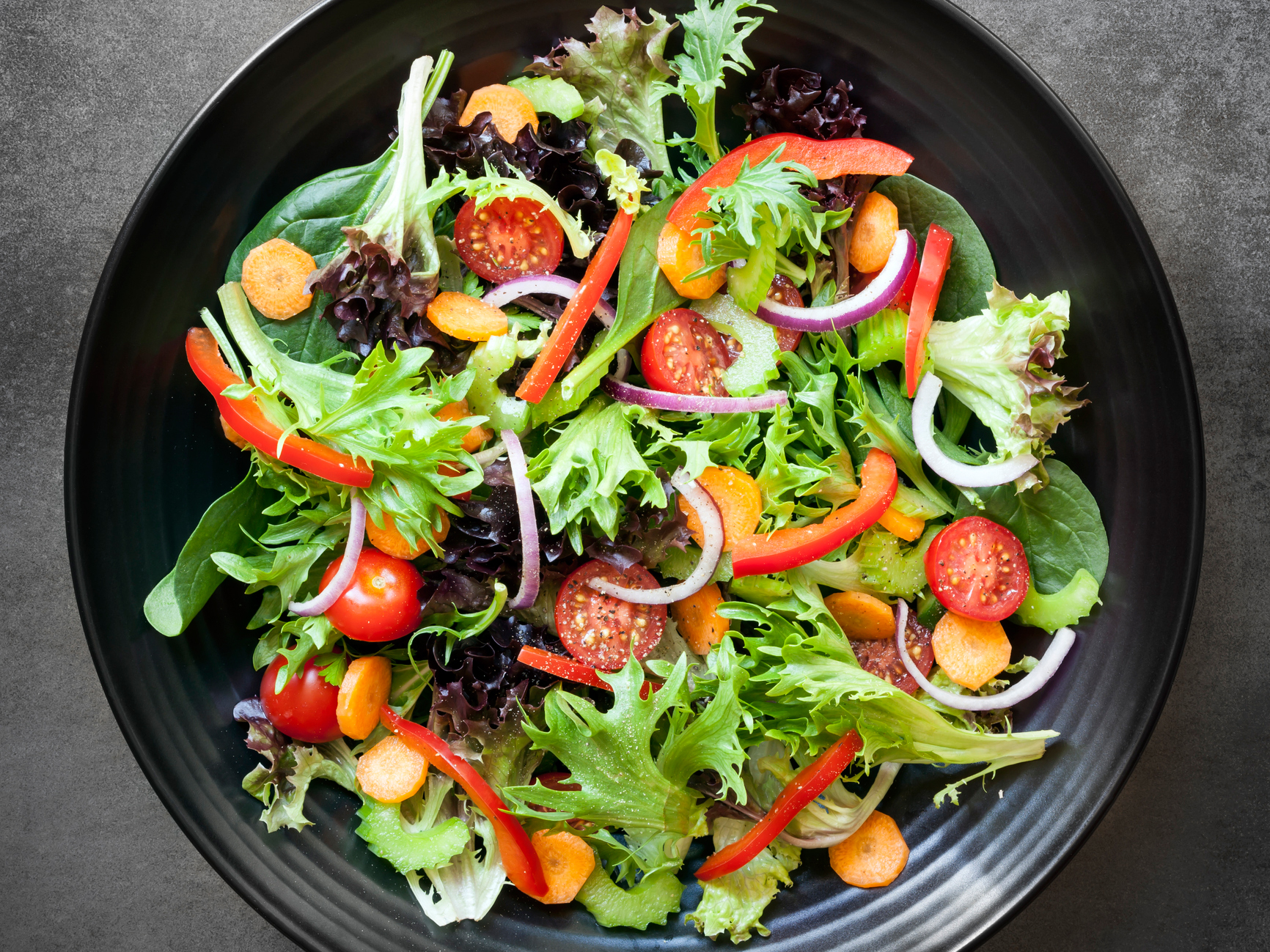Get Easy Health Digest™ in your inbox and don’t miss a thing when you subscribe today. Plus, get the free bonus report, Mother Nature’s Tips, Tricks and Remedies for Cholesterol, Blood Pressure & Blood Sugar as my way of saying welcome to the community!
Why all the superbugs in our salad greens?

Eating greens is good for you. No one can deny that.
Whether you choose kale, red leaf or arugula, a plate full of greens will give you a hefty dose of fiber, antioxidants, vitamins, minerals, and calcium. Plus, greens are low in calories. So, you get a lot of nutritional bang for your buck.
But even greens — the healthiest food on the planet — aren’t perfect. At least not nowadays… Just recently we were all warned to throw out the romaine due to an E. coli outbreak.
And unfortunately, there may be more of this to come.
Most of us purchase our greens in cut and washed in pre-packaged tubs. But research shows these greens often come with an unintended and unwelcome ingredient — antibiotic-resistant bacteria…
Antibiotic resistance is spreading through salad
We’ve already learned that superbugs are sabotaging 80 percent of supermarket meat. Now we know that they’re contaminating our salads too.
A study performed by researchers at the Julius Kühn Institute (JKI) in Germany found that packaged salad mixes contain antibiotic-resistant bacteria.
They analyzed mixed salads, arugula and cilantro in German supermarkets and found Escherichia coli (E. coli) in all of them. Now, E. coli is harmless most of the time. It’s found in our intestines and most strains don’t make healthy people sick. But these E. coli bacteria were alarming. And here’s why…
They contained transferable antimicrobial resistance genes. These are genes that can be passed on to other bacteria and make them more resistant to antibiotics. If these genes are passed on to pathogenic bacteria lurking around in your gut, for example, it could be very bad news.
Read: How to make a super salad with a 400% nutrient boost
But how are these superbugs that carry genes for antibiotic resistance ending up in our salads?
That’s easy. Factory farmers give loads of antibiotics to livestock to keep them alive in crowded and unsanitary living conditions. Eventually, the bacteria in these animals’ guts become resistant to antibiotics because they get them so frequently. These antibiotic-resistant bacteria (and even some of the antibiotics) are excreted and end up in fertilizers that are used on vegetable crops, including the leafy greens we use to make our salads.
How to get salad greens without superbugs
Don’t get it twisted. You should still eat lots of greens (just not romaine until the CDC gives it the “all clear”). Cutting greens out would be terrible for your health.
But, anytime you eat greens, you should take these precautions to decrease the odds of introducing antibiotic resistant genes into your belly…
- Choose fresh, unpackaged produce whenever you can. Precut, packaged salads are more likely to contain bacteria.
- Wash salad greens and herbs with drinking water before eating to reduce the bacteria that ends up on your plate. However, once bacteria attach to the surface of a vegetable, they become harder to kill, according to Dr. Robert Brackett, the Director of the Institute for Food Safety and Health at the Illinois Institute of Technology.
- Heat veggies for at least two minutes until the internal temperature of the food is 158°F. Heat kills bacteria. Of course, a warm salad may not sound appetizing at first, but consider a variation of warm spinach salad. Instead of just serving the warm dressing over cool spinach leaves, heat them up, too. Tender greens won’t stand up to heat well, but spinach or kale definitely would.
There’s one other action you can take for your own health and the greater good…
Don’t buy meat products that were treated with antibiotics. That’s where this whole problem with superbugs starts, after all. Choose organic, grass-fed, antibiotic-free meat products, so you’re part of the solution rather than the problem.
Sources:
- The Health Benefits of Dark Green Leafy Vegetables — University of Kentucky College of Agriculture
- What Are the Benefits of Eating Salads? — SFGate
- Resistant bacteria: Can raw vegetables and salad pose a health risk? — MedicalXpress
- The Transferable Resistome of Produce — mBio
- E. coli: Overview — Mayo Clinic
- Reduce Antibiotic Misuse in Livestock — Natural Resources Defense Council
- How to Kill E. coli on Vegetables — Quick and Dirty Tips













